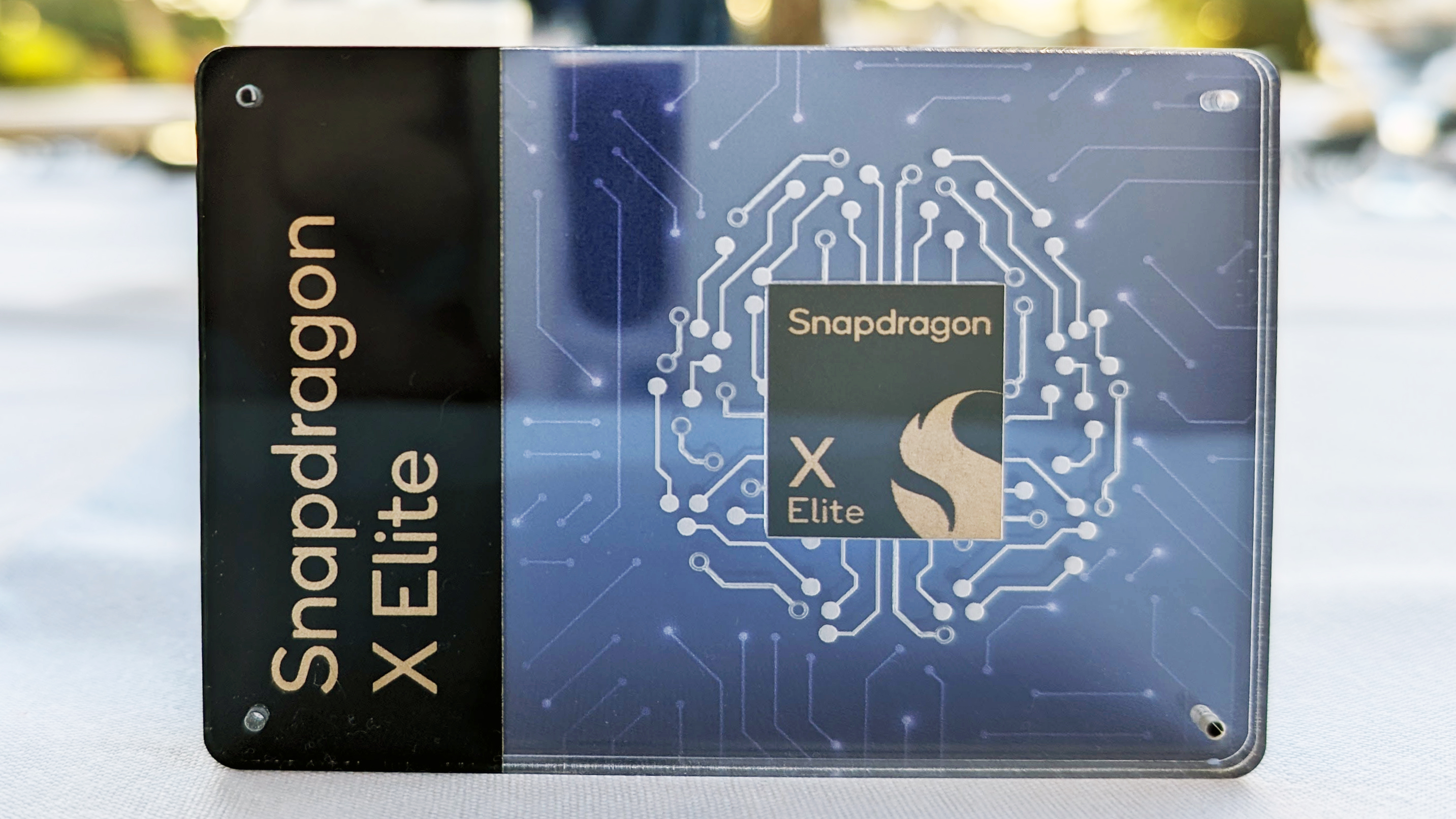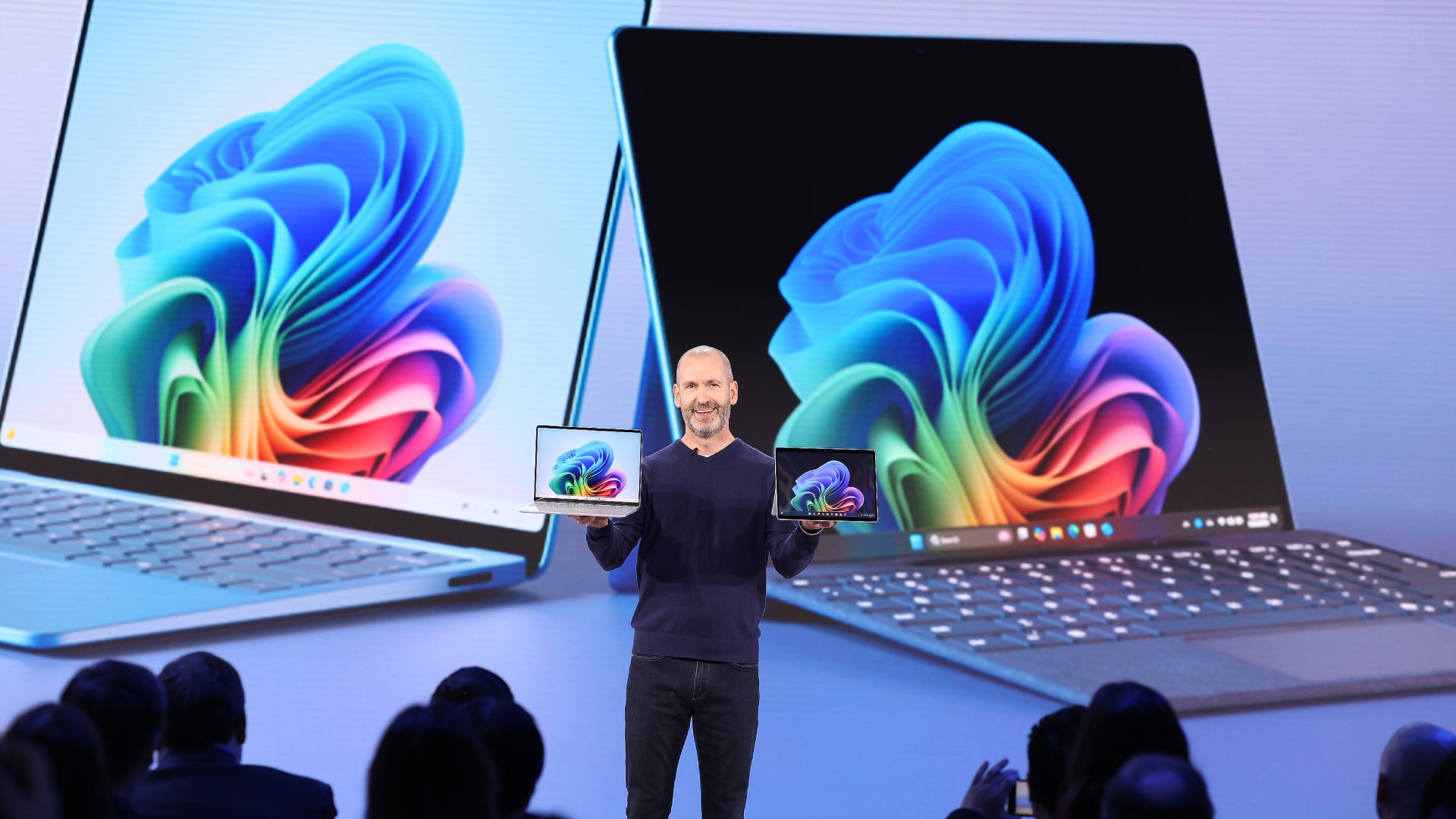Snapdragon CPUs could be over 50% of Windows PCs by 2029, Qualcomm’s CEO predicts – so should Intel be worried?
Snapping up the majority of the Windows 11 PC market, maybe in just a few years, even?

Qualcomm envisions a future where its Arm chips become the dominant force in the world of Windows PCs, and that this will happen before the decade is out.
The company is certainly talking a big game when it comes to its new Snapdragon X (Arm-based) chips – and the silicon that’ll follow down the line – with Qualcomm’s CEO backing up Arm’s chief executive when it comes to this prediction.
Rene Haas, CEO of Arm, made the comment that he expects Arm processors to make up 50% of the Windows PC market within five years, and in a Q&A session during Computex 2024 with Qualcomm’s CEO, Cristiano Amon, Tom’s Hardware asked whether Amon believed this was a realistic expectation.
Amon essentially replied yes, he subscribed to that belief, and indeed even went further, noting that some laptop makers (OEMs) have expectations of snaffling more Windows PC market share in perhaps an even shorter timeframe.
Amon noted: “I like, for example, some of the things that some OEMs said in their earnings calls. How they think about this is changing. Some OEMs are talking about 40 to 60% of their total sales within three years [for ARM-based Windows PCs]. I also saw some OEMs talking about 50%, but those are the order of magnitudes. That’s kind of the opportunity that we have.”
In short, there’s a lot of potential, the Qualcomm CEO would have us believe, and the possibility of more than half of the laptops being made by some OEMs having Snapdragon chips inside, as opposed to the dominant x86 processors of today from AMD and Intel.
Analysis: Flying high with Copilot+

Predictions like this in the tech industry are not new, and they’re meant to grab our attention, obviously enough. Clearly, we need to look at the reasoning behind the headline-grabbing statements here, and for Amon, it’s all wrapped up in Copilot+ PCs.
Sign up for breaking news, reviews, opinion, top tech deals, and more.
Amon observes that typically, a new incarnation of Windows will witness a slow and very gradual pace of adoption. (We can certainly look at Windows 11 as the epitome of this, as it’s been extremely sluggish at driving adoption, as we’ve underlined many times in the past).
But with the introduction of Copilot+ PCs, things are going to be different, Amon tells us. The CEO states that: “This is a Windows change to Copilot+, and you’ll see this huge push to say this is a new type of machine. This is a machine that increases productivity and has some new use cases, and it now has a more comprehensive suite of Copilot [extra AI features like Recall], so I expect the transition this time will be faster than any other version of Windows.
“So I think that’s going to be a bigger sell. And I think there’s some logic behind those numbers [the 50% adoption], and we’re doing a tremendous amount through many journeys to try to bring the Oryon CPU [Snapdragon] that works on the ARM instruction set to this industry.”
That’s all well and good, but there’s a big assumption here, and a notable sticking point in the argument to boot. Firstly, the former: are Copilot+ PCs really going to be an entirely new force in computing that spreads like wildfire? Well, maybe, but that’s hardly a given yet. There are some neat ideas wrapped up in this whole AI PC concept, but there’s no guarantee that Copilot+ PCs are going to be the future.
What if AI underperforms compared to the big promises made? What if there are very real privacy or security concerns about an AI PC? (The new Recall feature is already causing a massive stir on both of those fronts, and it’s not even officially out yet).
Okay, so AI is being driven forward at a rate of knots, and it is a major force with Windows 11, without a doubt – so you could certainly argue that Copilot+ PCs are likely to be a big deal. Especially down the line when the AI functionality is more fleshed out and perhaps pulls off some genius tricks.
But even then, we come to the mentioned sticking point – Copilot+ PCs aren’t just about Arm chips. They are to begin with, because only the new Snapdragon X has the NPU to be able to accelerate these more in-depth AI features (such as Recall) so they work well. But AMD and Intel CPUs are around the corner with equally powerful NPUs, and these will be in Copilot+ PCs too – so it’s not all about Arm (even if it is for now, until later in 2024).
Perhaps Qualcomm is indicating that it’s going to win the AI race through staying ahead with the power of its NPU, but that’s not so much a leap of logic, as Amon touches on in his above quote, than one of faith.
We’re not saying it couldn’t happen, but Arm taking over Windows PCs still feels a long way off yet – maybe longer than half a decade for us. Short term, never mind AI features in Copilot+ PC, where the battle will really be is in emulation – and Arm-based laptops being able to run all the software AMD and Intel notebooks do, with a close to native level of performance – and also battery life.
If the Snapdragon can score here, and keep scoring – as well as staying ahead in the NPU race – well, perhaps Amon, and those OEMs he mentions, could be proved right. There are a lot of ifs and maybes wrapped up in that, though, and it feels way too early to call it as big as Qualcomm, Arm, and others appear to be doing.
You might also like...
Darren is a freelancer writing news and features for TechRadar (and occasionally T3) across a broad range of computing topics including CPUs, GPUs, various other hardware, VPNs, antivirus and more. He has written about tech for the best part of three decades, and writes books in his spare time (his debut novel - 'I Know What You Did Last Supper' - was published by Hachette UK in 2013).